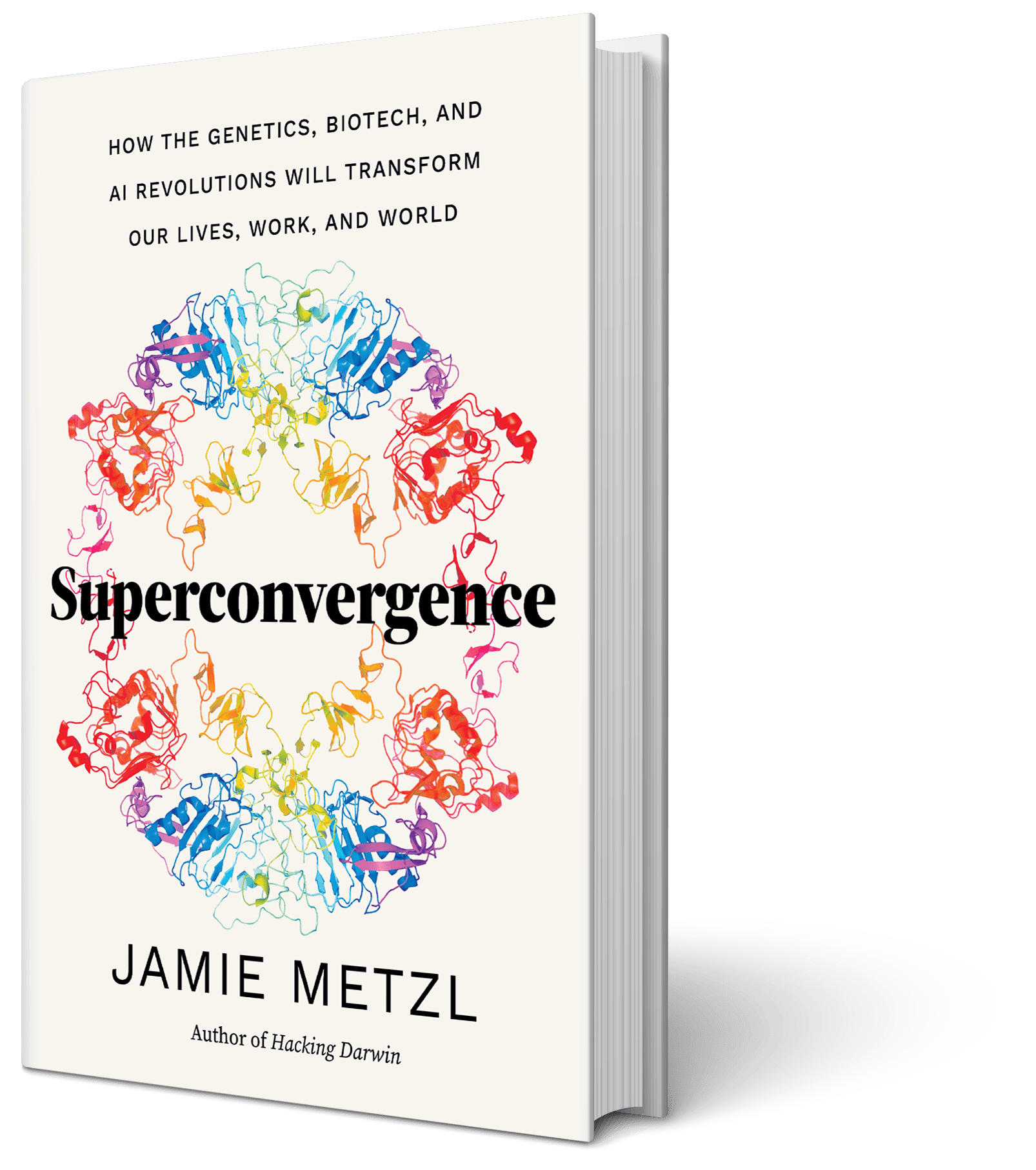Conversation Questions
- Why does the author begin the book discussing the nature of technological change? In what ways is our current era of change different than previous eras such as the dawn of previous revolutionary technologies like agriculture, writing, electricity, and computing?
- Do you agree with the author’s assessment that the most important developments of our time are human-engineered intelligence and human re-engineered biology? Why or why not?
- How do you feel about the future of predictive and preventive healthcare the author lays out in the book? Would you be willing to share your most personal health and medical information if it could help you identify future health threats before they emerge? Would you rather not know?
- Do you agree with the author’s assessment that agriculture itself is a form of radical biotechnology and that the difference between the plants our ancestors domesticated and our current staple crops is far more significant than the differences between today’s staple crops and their genetically modified cousins? If so, does that make you think differently about GMO and gene-edited crops?
- Would you be comfortable eating meat products grown from animal cells in industrial bioreactors if they were biologically the same as products extracted from slaughtered animals? To what extent do the climate, environment, animal cruelty, and human health downsides of industrial animal agriculture influence your assessment?
- Can you imagine future buildings being grown kind of like coral reefs? How does that make you feel?
- The author outlines multiple scenarios of things that could go wrong if the overlapping AI, genetics, and biotechnology revolutions go awry. Which of these scenarios frightened you the most and why?
- In the final chapter of the book, the author lays out a series of steps that can be taken today to help increase the odds of positive outcomes and decrease the odds of more negative ones. Did you find his arguments convincing? Why or why not? What else would you suggest?
- How can you — as an individual and as part of a host of larger communities — play a role in ensuring that our most cherished values guide the application of our most powerful technologies?
- The author writes, “Whether we like or even accept it or not, our fates are intertwined with each other, with all living beings, and with the health of our planet in our increasingly interconnected world.” Do you agree? If so, should that realization inspire you to do anything different in your life?
